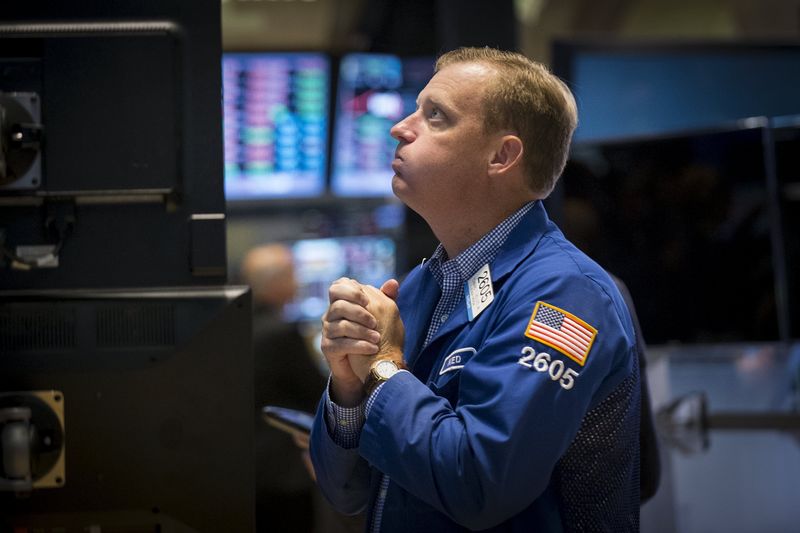This post was originally published on this site
https://i-invdn-com.investing.com/news/LYNXNPEB7N0OT_M.jpg
The Dow Jones Industrial Average fell 0.03%, or 8 points lower. The Nasdaq slid 0.35%, and the S&P 500 fell 0.2%.
The melt-up in tech stocks seen earlier this week ran out of steam as Treasury yields regained momentum after Federal Reserve officials suggested that further rate hikes can’t be ruled out as inflation remains too high and labor markets too tight.
“Should inflation remain high and the labor market remain tight, additional monetary policy tightening will likely be appropriate,” Fed Governor Michelle Bowman said on Friday.
Apple Inc (NASDAQ:AAPL) led the move lower in big tech followed by Meta and Microsoft Corporation (NASDAQ:MSFT), though Alphabet Inc (NASDAQ:GOOGL) bucked the trend to close marginally higher after the tech giant agreed to pay $8 million to settle allegations of misleading advertising to promote its Pixel 4 smartphone.
Data showing consumer sentiment fell by more than expected to 63.5 in April, the lowest reading since last November, and long-term consumer inflation rising to a 12-year high also weighed on sentiment.
Consumer stocks including Amazon.com Inc (NASDAQ:AMZN), Carnival Corporation (NYSE:CCL), and Norwegian Cruise Line Holdings Ltd (NYSE:NCLH) were among the worst hit.
Regional banks slumped 5% for the week, weighing on the broader market, with PacWest Bancorp (NASDAQ:PACW) dropping 3% on the day after announcing it had pledged more collateral to the Fed to allow it to borrow an additional $3.9 billion from the central bank’s emergency lending facilities.
The regional banking crisis will likely deteriorate further as many banks have exposure to low-yielding assets at a time when the higher interest rates are forcing them to offer more attractive rates of return, pushing up their funding costs and pressuring margins.
The banking turmoil is something that “probably gets worse, meaning people are going to be less interested in lending money, three months from now even than they are today,” Chief Strategist at Spouting Rock Asset Management Rhys Williams told Investing.com’s Yasin Ebrahim in an interview on Thursday.
“I think it’s a significant issue for the economy and supportive of GDP slowing,” Williams added.
In deal news, First Solar Inc (NASDAQ:FSLR) closed up 26%, its biggest one-day gain in 10 years, after the solar company announced a deal to acquire Evolar AB for up to $80M to accelerate its development of photovoltaic technology.
On the political front, there were some hopes of progress on talks in Washington among lawmakers on legislation to raise the debt ceiling and avoid the U.S. default on its debt payments.
U.S. credit-default swaps, an insurance against bad loans, on Treasuries have been on the rise in recent days, suggesting that worries about a default are growing.
The chance of a U.S. debt default is about 2%, according to Williams, though he adds that markets could sell off as the risk of a no-deal on raising the debt ceiling grows, but any losses would be recovered quickly as soon as a deal is announced.
“We could easily have a five or 10% downdraft in stocks ahead of a deal, but we’ll get it right back as soon as the deal is announced,” Williams said, adding that a 60/40 stock-to-bond portfolio allocation would help cushion the risk of a default.
“If there is a debt default, government bonds are going to go up because that’s very economy negative and bank stocks are going to lose money and bonds are gonna make money,” he added.

